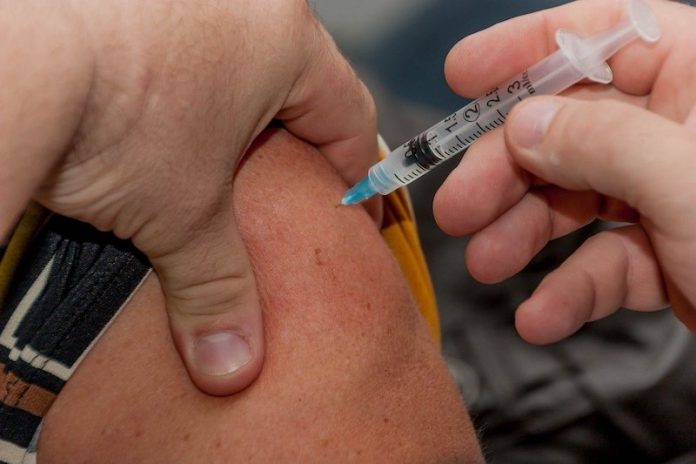
In a new study, researchers found flu jab after a heart attack should become standard care.
They found influenza vaccination reduces death risk at 12 months in hospitalized patients with a heart attack or high-risk coronary disease.
During influenza epidemics, more people die from cardiovascular causes than during non-epidemic periods.
Studies have suggested a protective effect from influenza vaccination on heart disease events. Influenza vaccination is recommended for patients with heart disease but is not part of standard hospital care following a heart attack.
The current trial was conducted at 30 hospitals in eight countries (Sweden, Denmark, Norway, Latvia, the UK, Czech Republic, Bangladesh and Australia) over four influenza seasons spanning October 2016 through February 2020.
Participants were assigned in a 1:1 ratio to receive either the influenza vaccine or placebo within 72 hours of an invasive heart procedure or hospitalization.
The trial was halted prematurely on 7 April 2020 by the data safety and monitoring board due to the COVID-19 pandemic after the enrolment of 2,571 patients (58% of the target). The average age of participants was 60 years and 18% were women.
The team found death from any cause occurred in 37 patients (2.9%) in the vaccine group and 61 (4.9%) in the placebo group. Rates of heart death were 2.7% and 4.5%, respectively.
The findings suggest that in patients with a heart attack or high-risk coronary disease, yearly influenza vaccination resulted in a lower risk of death at 12 months.
The findings suggest that influenza vaccination should be considered as part of in-hospital treatment after a heart attack.
If you care about heart attacks, please read studies about new toothpaste could identify plaque, may help prevent heart attack, stroke and findings of these two things may help you avoid heart attacks.
For more information about heart health, please see recent studies about a common cause of high blood pressure, heart attacks, diabetes and results showing how to make the healthiest coffee to reduce heart attack risk.
The study was presented at ESC Congress 2021. One author of the study is Professor Ole Fröbert of Örebro.



